And now the real countdown begins. Here are my Top 50 films of 2021. All of these films received 4 stars (out of 5) or higher. It was very difficult to rank them, so on any given day the exact order might shift a bit. Interestingly enough films that revolved around grief as a them did very well in 2021. Upon early reflection I considered grief to be incredibly cinematic. It’s something we all go through at some point in our lives, and can relate to, but it manifests in people so differently. There are films from all over the world, first-time to seasons directors, narratives, a few documentaries, and lots of dramas.

#50 – Language Lessons, directed by Natalie Morales (USA) – A clever premise and a surprising twist turned LANGUAGE LESSONS, shot during the pandemic through videochat, an incredibly affecting and effective story. As a gift, Adam’s husband gives him weekly Spanish lessons online, taught immersively by Cariño, a native Spanish-speaker living in Costa Rica. Adam is uncertain how he’s going to fit these lessons into his daily routine, but when an event occurs that totally disrupts his life he finds something in Cariño he never would have expected. It really helps that Mark Duplass ad Natalie Morales are such engaging and charismatic performer, even through the rectangular box of a web chat. If the story takes a swerve or two toward the melodramatic, it is after all a depiction of life over a period of time, and we all have our ups and downs. This is also a great examination of grief and how its effects are often manifested in behaviors that don’t seem at all connected with the loss being face. ****
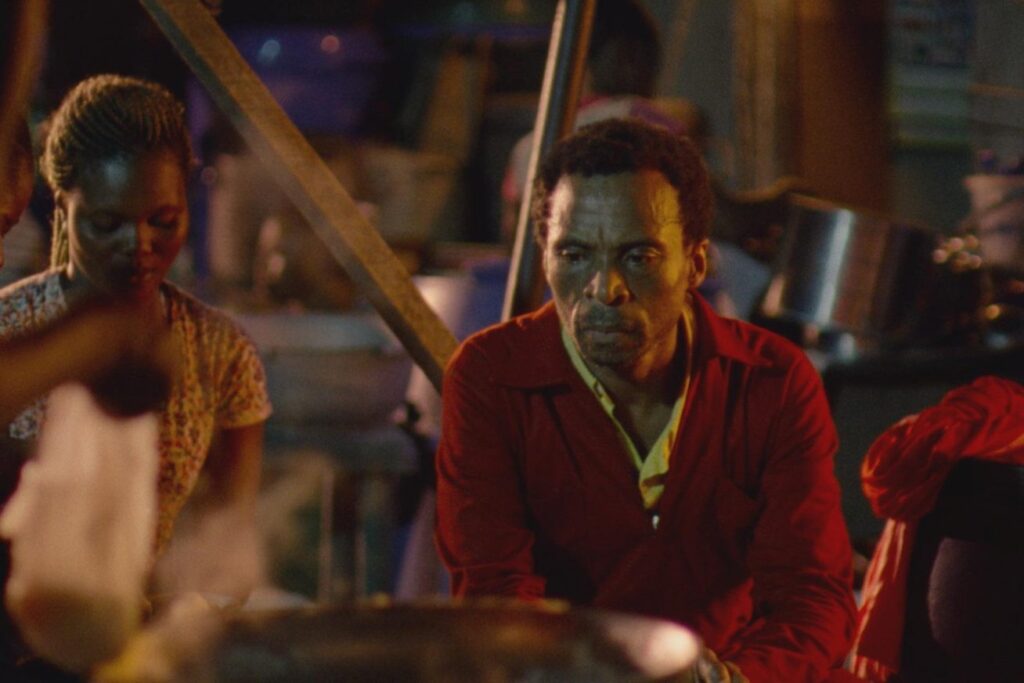
#49 – Eyimofe (This is My Desire), directed by Arie Esiri and Chuko Esiri (Nigeria) – This complex and humanistic narrative written and directed by twin Nigerian brothers, won Best First Feature at the 2020 Berlin Film Festival, and justifiably. The film, nearly split down the middle, follows the stories of two loosely connected individuals, trying desperately to leave Nigeria for Europe. Mofe is a handyman, how is treated poorly at work, but doesn’t care because he just got his passport and visa to leave the country. When a tragic accident upends his life both personally and financially, he finds his documents are not enough to allow for an easy escape. Rosa’s life seems superficially a step up, as the hairdresser occasionally has clients in posher locations, which is where she meets a wealthy American who takes a shine to her. Is Rosa using this man to get out of the country, like his friends suggest, or is she genuinely attracted to him. Her situation at home where she takes care of her pregnant younger sister complicates things even more, as the brothers quietly address additional inequities of gender on top of class in Rosa’s story. ****
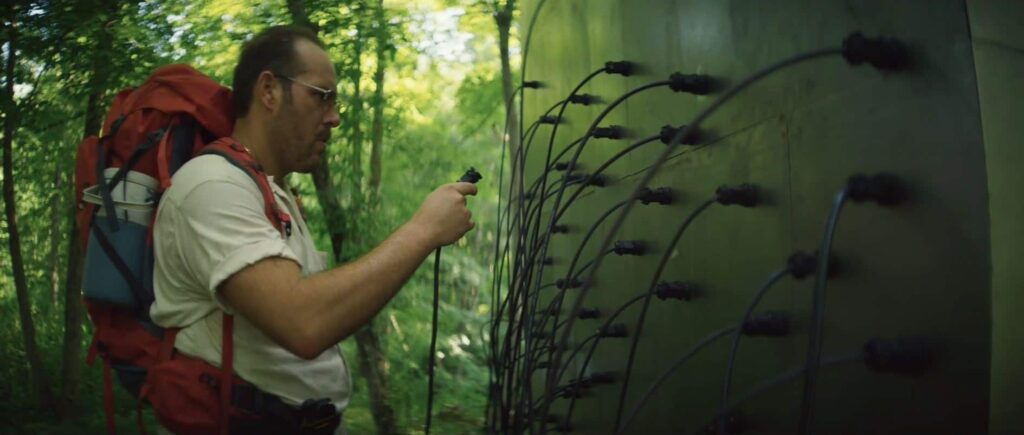
#48 – Lapsis, directed by Noah Hutton (USA) – For his feature debut, writer/director Noah Hutton tackles the uncertainty of the economy and marries it to a vaguely science fiction premise set in a parallel present. Ray is doing his best to get by, and take care of his brother who is suffering from a new form of Chronic Fatigue Syndrome. Problem is, Ray’s not your industrious go-getter sort. He wants the easy way to make a quick buck. The newest trend and fastest growing industry is quantum cable, and it involves dozens of people hiking through remote areas, dragging carts of unspooling cable that they connect to large, cube-shaped quantum power sources in the wilderness. Through luck, maybe good, maybe bad, Ray inherits a medallion (think cab driver) of a past cabler who had logged lots of hours already, putting in place for the big money-making routes that also tax his out-of-shape physicality. On his first weekend out, he encounters suspicion and resentment when he shares his username, and he realizes that the previous medallion owner was well-known and rather infamous. When he shares his route with Anna for a time, he starts to uncover all sorts of politics and plots lurking just beneath the surface of this new industry, and he must decide upon which side he will stand. ****
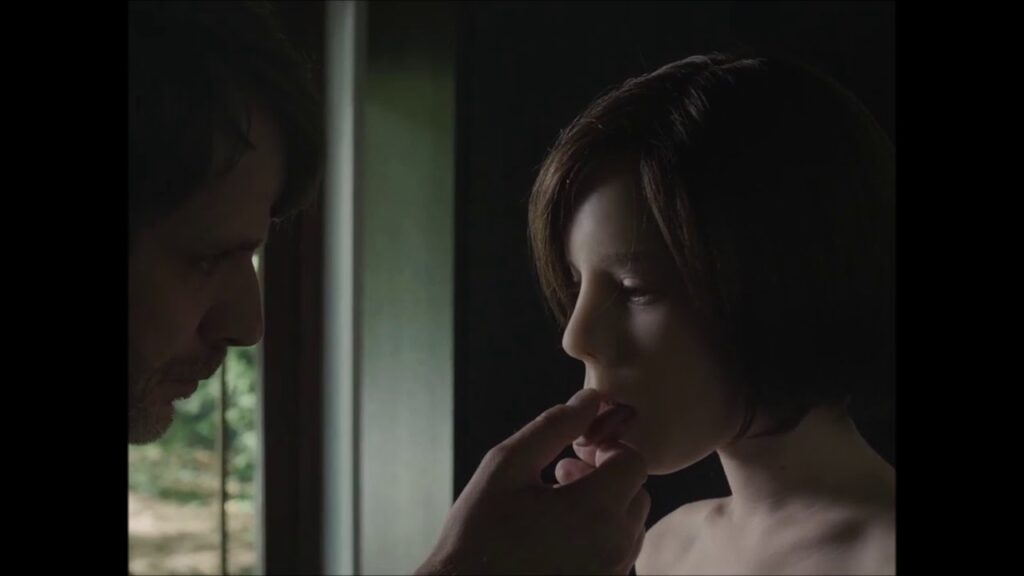
#47 – The Trouble With Being Born, directed by Sandra Wollner (Austria/Germany) – This provocative film cause a bit of controversy during its festival release, and could cause some trigger warnings to go off with some viewers, but Wollner took great care to protect the lead actor, herself a minor, from anything inappropriate. Set in the future, the film starts with a father and daughter spending a leisurely summer afternoon by the pool. When a shocking event occurs, it is revealed that the daughter is in fact, not human, but an adroid. The two share an easy relationship, that is gradually revealed to be somewhat more than a typical father/daughter relationship. When the girl starts to have disjointed memories of earlier times, it spurs her to leaves her home, and the movie makes a radical shift. She is found on the road by a man driving by, and is brought to a new household to live with an elderly woman. There she is given a new identity to fill a loss the woman suffered decades ago. The adjustment does not go smoothly, and eventually breaks down with devastating results. Wollner explores many troubling themes in this film, including grief, gender identity, and taboo relationships, but none more directly as the ethical treatment of artificial intelligences.
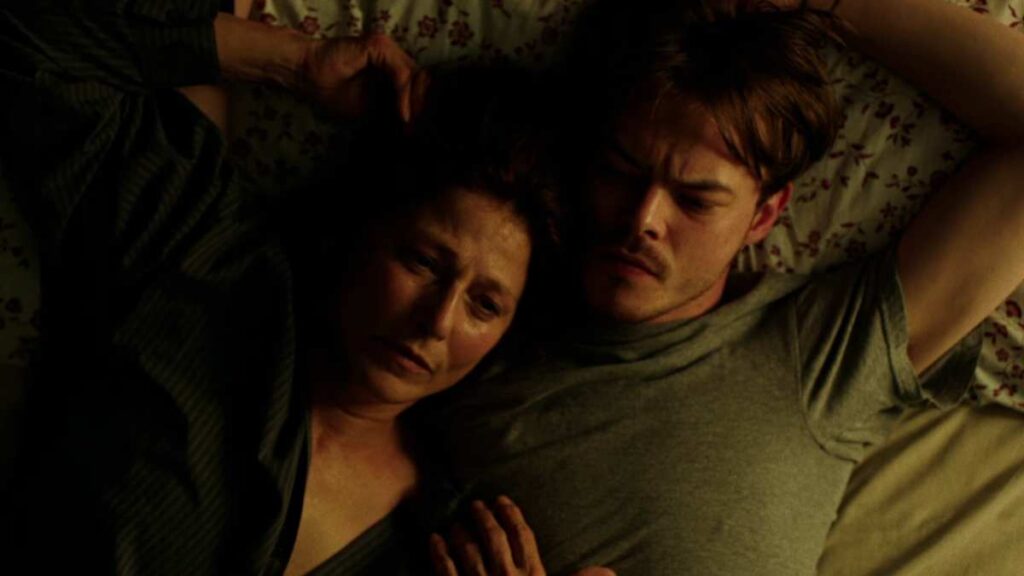
#46 – No Future, directed by Andrew Irvine and Mark Smoot (USA) – What sounds like a sordid plot from the trashy soap opera is handled with intelligence and care, and bolstered by remarkable lead performances to become a portrait of the collective trauma that is running rampant through small towns across America due to drug addiction. Will is clearly uncomfortable hen an old friend shows up at his door. Will is a recovering addict, on the verge of hope that a drug-free life is within his grasp, so out of self-preservation, he rebuffs his old pal Chris who is still hooked on drugs. When Chris dies of an overdose that night in his bedroom, Will is wracked with guilt, and attends the funeral service where he reconnects with Chris’ mother, Claire. The pair’s mutual grief brings them together, and despite the fact that Will is on the verge of a commitment to move in with his girlfriend, he ends up involved in an affair with Claire. Addiction and guilt do not mix well, and when deception is added to the mix, there’s no way for this story to go except downhill. Fortunately, Irvine and Smoot have written a nuanced screenplay that avoids sensationalism, and the performances by Charlie Heaton and Catherine Keener are beautiful in their vulnerability and sensitivity. One scene in particular that shows Claire imagining that two young women are talking about her and her son at her place of work is a revelation, and a lovely moment to show the range that Keener is able to bring to a role that is so far beyond the smart, cynical character she so often is known for. ****

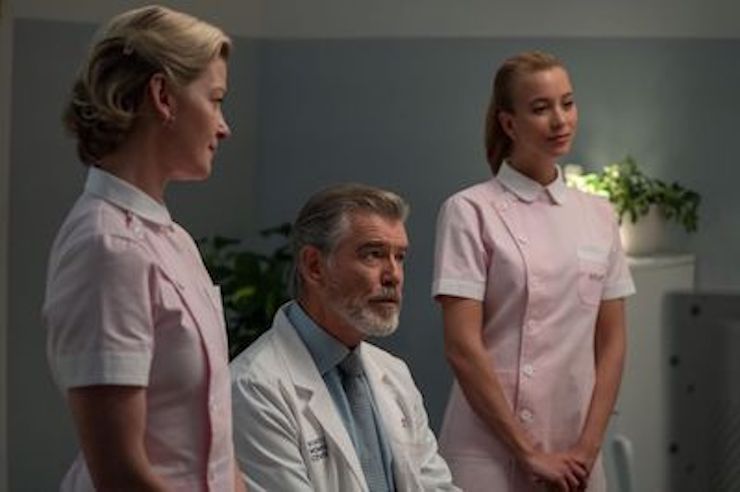
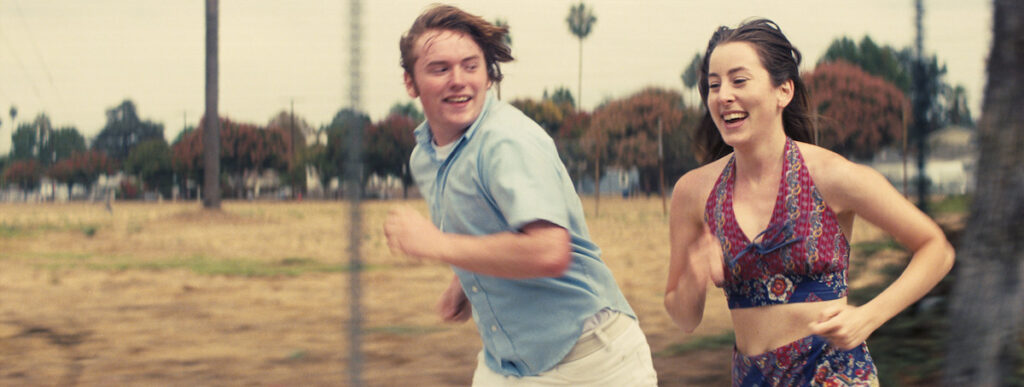
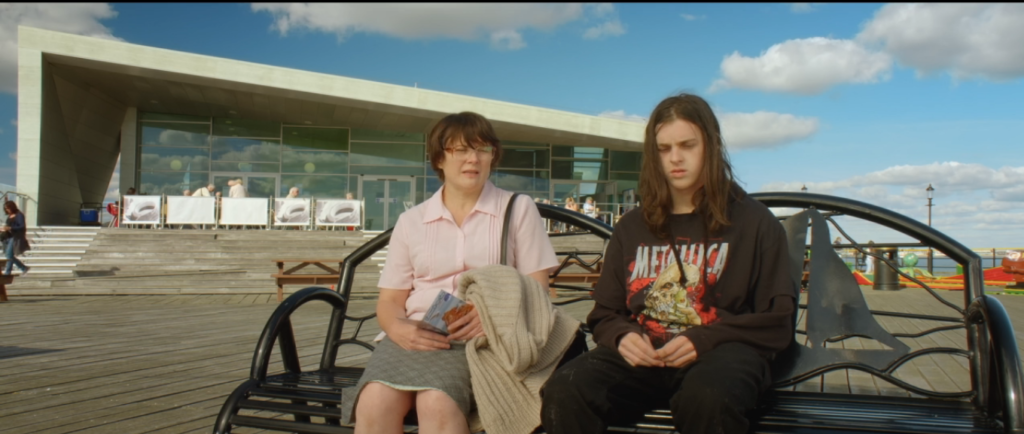
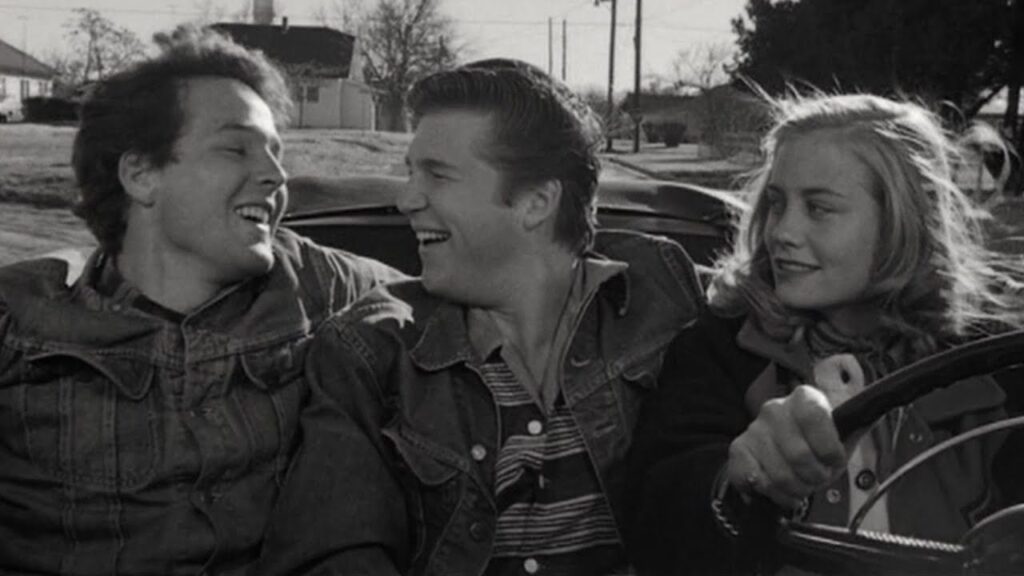
 My #1 book of the year comes from an author whose work I have followed pretty much since his debut short story collection, The Secret Lives of People in Love in 2007. That was actually the second of his works that I read, first discovering him thanks to my friends at HarperCollins with his follow-up collection, Love Begins in Winter published in 2009. I didn’t do a list of favorite books read in that year, but I suspect Love Begins in Winter would have at minimum been in my Top 10, with a good chance it would have ranked considerably higher. After publishing a trio of books of essays, Simon published his first novel in 2011, Everything Beautiful Began After which ranked #8 in my list of
My #1 book of the year comes from an author whose work I have followed pretty much since his debut short story collection, The Secret Lives of People in Love in 2007. That was actually the second of his works that I read, first discovering him thanks to my friends at HarperCollins with his follow-up collection, Love Begins in Winter published in 2009. I didn’t do a list of favorite books read in that year, but I suspect Love Begins in Winter would have at minimum been in my Top 10, with a good chance it would have ranked considerably higher. After publishing a trio of books of essays, Simon published his first novel in 2011, Everything Beautiful Began After which ranked #8 in my list of 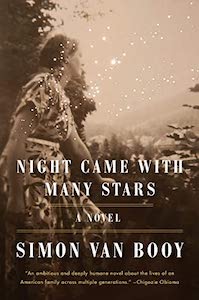 #1 – Night Came With Many Stars by Simon Van Booy (2021) – It’s always exciting when you’re a few chapters in and you start to realize that the book you’re reading is going to be a great one. Night Came With Many Stars the latest novel by Simon Van Booy, is one such book. A gifted writer, Simon’s books are all good, but there are a couple of his that rank among my favorites. His latest, a exquisite telling of four generations of a family living in Kentucky from the early 30’s to 2010, is an unexpected and delightful return to that echelon of beauty. Along with Patricia A. McKillip, Van Booy is one of the few authors whose use of language alone is enough to get me to read their work, regardless of subject. In this novel, the care and warmth in which Simon treats the members of this family is simply breath-taking, even as it is simple.
#1 – Night Came With Many Stars by Simon Van Booy (2021) – It’s always exciting when you’re a few chapters in and you start to realize that the book you’re reading is going to be a great one. Night Came With Many Stars the latest novel by Simon Van Booy, is one such book. A gifted writer, Simon’s books are all good, but there are a couple of his that rank among my favorites. His latest, a exquisite telling of four generations of a family living in Kentucky from the early 30’s to 2010, is an unexpected and delightful return to that echelon of beauty. Along with Patricia A. McKillip, Van Booy is one of the few authors whose use of language alone is enough to get me to read their work, regardless of subject. In this novel, the care and warmth in which Simon treats the members of this family is simply breath-taking, even as it is simple.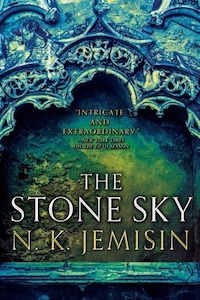 #3 – The Stone Sky by N. K. Jemisin (2017) – Minor SPOILERS below.
#3 – The Stone Sky by N. K. Jemisin (2017) – Minor SPOILERS below.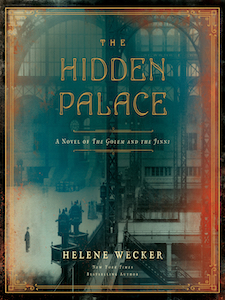 #2 The Hidden Palace by Helene Wacker (2021) – Delighted to discover that Helene Wecker had written a sequel to her NYT best-selling novel, The Golem and the Jinni (my #2 book of 2013). The Hidden Palace picks up where she had left off in her debut, detailing the unusual journey of two singular souls, a golem named Chava Levy, and a Jinni named Ahmad, who inhabit an ever-changing world of early 20th century New York City. Although the pair find solace in each other’s company, their relationship is a tumultuous one, eventually fracturing in a way that ripples outward and affects many around them as they struggle to find their places in a human world.
#2 The Hidden Palace by Helene Wacker (2021) – Delighted to discover that Helene Wecker had written a sequel to her NYT best-selling novel, The Golem and the Jinni (my #2 book of 2013). The Hidden Palace picks up where she had left off in her debut, detailing the unusual journey of two singular souls, a golem named Chava Levy, and a Jinni named Ahmad, who inhabit an ever-changing world of early 20th century New York City. Although the pair find solace in each other’s company, their relationship is a tumultuous one, eventually fracturing in a way that ripples outward and affects many around them as they struggle to find their places in a human world.